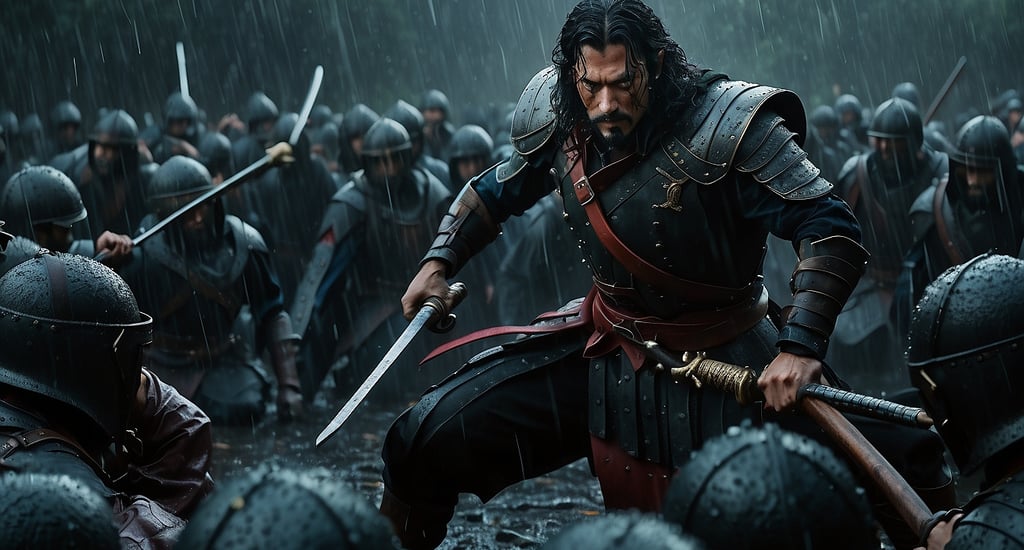Defining Masculinity: A Humble Perspective
Hello fellow readers. Welcome to the blog, today we are going to discuss what is masculinity (in my modest opinion). Masculinity, as a concept, is now subject to an array of interpretations and definitions. It fascinates me the multitude of voices, each presenting its distinctive perspective on what it means to be masculine. Naturally, amidst this diversity, conflicts arise, as these definitions often clash and contradict one another. If we are to accept that masculinity can be defined solely by the individual and that all these varying definitions hold equal truth, then we must face the realisation that masculinity,the very concept they try to define, loses its meaning. Nonetheless, the multitude of voices surrounding masculinity demands a thoughtful reflection on its true essence. While it is absolutely vital that people feel free to express their opinion and to recognise and respect each person's unique understanding of masculinity, the absence of a coherent and universally understood definition challenges the significance of the term itself.
Just like we can ask what is a car, key, or door, we can question what is masculinity. By focusing on the essential elements that define masculinity and disregarding the extra features that may be associated with it, we can uncover its true essence. Much like a car, there are certain characteristics that are indispensable for it to be a car, so it is with masculinity. It is important to recognise that this is not about defining masculinity for any individual, but rather understanding its origins and significance. This approach involves delving beyond superficial traits or supposed societal constructs and seeking the core purpose for which masculinity was created. By dissecting the purpose behind masculinity's creation, we can gain insight into its meaning and relevance in society.
Depending on one's background, the starting question will be shaped by certain assumptions. The starting point for any inquiry often reflects our underlying beliefs, values, and worldview. In the case of understanding masculinity, one's background and perspective shapes the initial questions asked and the assumptions made. For some, like myself, the belief in a divine creator informs the approach to defining masculinity. In my worldview God has created man, therefore the creator gets to define what he created, and he created man to reflect his character. This perspective stems from my belief that the creator's design and intention for man must shape our understanding of masculinity.
If someone were to ask me what a goalkeeper is, I would likely answer that it is a football (soccer) position whose purpose is to prevent goals from being scored that is why the position was created. The specific methods or techniques employed to achieve this goal are secondary; what truly matters is the ability to effectively prevent goals. Similarly, when it comes to masculinity, I believe it is closely related to the ability or capacity to exert control over one's life, independently of how you go about it. Masculinity, in my understanding, is linked to the degree of influence one has over their, political, natural or social environment and the people they interact with, including oneself in terms of your body and mind. How much of your life is set according to your views, the people around you, where you live, your job, your mental state, your finances etc. It is the ability to impose one's will over themselves, their environment, and the people they have contact with. Now, depending on one's personal moral views, you can use these qualities, such as confidence, assertiveness, competence and physical strength to achieve whatever goals you have independent of any morals and still be masculine. Much like the ability to fight or wield a sword does not define a man's moral compass, so it is with masculinity, it is a set of tools men must acquire, but being masculine does not necessarily make you a good man, or one worth emulating.




Looking back at many of the movies I enjoy, I realise that some of the most memorable villains have certain masculine qualities that make me admire them, although I may disagree with their morals. These qualities include resolve, assertiveness, discipline, focus, physical strength, courage and sometimes even the willingness to sacrifice themselves for a goal they believe is worthy. As a man, I find these qualities to be masculine and something to admire. Ultimately, these qualities make the villains a worthy opponent for the hero to defeat. The hero often needs to surpass the villain in at least one of these qualities in order to prevail. Although I may root for the hero, there is a certain fascination and admiration for the villains when they seem to possess such strong masculine qualities. Whether hero, villain or anti-hero, these characters determination and strength are undeniably commendable. Ultimately, the admiration for certain traits exhibited by villains and heroes alike speaks to the complexity of human psychology and the power of storytelling to evoke empathy, admiration, and introspection. It is through engaging with characters, both heroic and villainous, that we explore our own values, desires, and understanding of masculinity in all its forms.
However it is my belief that masculinity, like any aspect of human existence, has a predetermined purpose ordained by the divine. Much like defining the role of a goalkeeper in football, you may approach masculinity by considering its intended function within the broader context of human life. In my perspective, rooted in the belief that God created man, the question of what masculinity is, can be answered as a man who has acquired, masculine qualities (for we are not born with them) mention above such as, self-control, strength and courage, and uses them for a good, rather than selfish or evil purpose. So how much control are you exerting over your own life, and what direction are you giving it?
Get in touch


